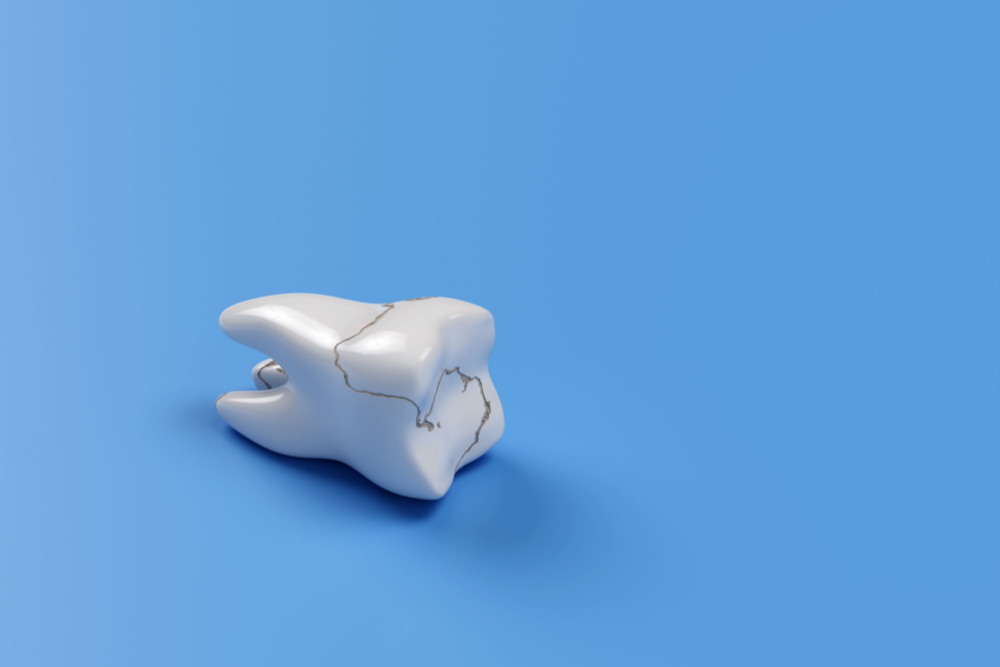If you’re in tooth pain, it can be hard to focus on anything else, and become a minor or major disruption to your daily routine. However, tooth pain comes in many different degrees and forms, and you may not know that its cause is something you need treatment for as soon as possible when it first arrives. If you’re in pain or have experienced a sudden change in tooth sensation, we encourage you to call our office to schedule an appointment as soon as possible.
Symptoms of Cracked Teeth
Cracked teeth can cause sudden or recurring pain or discomfort nearly anywhere in the mouth, due to something you ate, chewed, or were injured by. Unlike a toothache where pain is sharp and constant, a cracked tooth can result in slightly different symptoms, such as:
- Having intermittent tooth pain
- Feeling sharp pains when you chew
- Wanting to chew only on one side of your mouth
- Having increased sensitivity to hot, cold, sweet, or sour foods
These symptoms may be a sign of a cracked tooth or other issue that may require dental solutions such as a filling, onlay, or dental crown.
Risks and Causes of Cracked Teeth
Over time, your teeth endure constant and intense wear and tear that physically erodes the strength of the enamel that protects the softer inner parts of teeth where nerve endings reach. This leads to an increase in everyone’s risk for tooth damage and decay, including cracked teeth.
Specific foods and habits can further increase the wear on your teeth, such as frequently eating crunchy foods, hard candies, or even chewing ice, as well as potential medical conditions such bruxism (teeth grinding) or clenched jaw due to a TMJ disorder.
Teeth can also lose some of their natural integrity when they’ve already been treated once to fix a cavity with a filling or root canal. Finally, injuries sustained when playing sports or having some kind of mouth injury can affect the strength of your jaw and teeth.
Diagnosing and Treating Cracked Teeth
Teeth cracks come in all shapes and severities, and require full analysis before creating a custom treatment plan to ensure the most holistic and effective approach. First, you will likely have X-rays taken of the affected tooth/teeth as well as a physical examination of the area. Tooth fractures are commonly invisible except on X-rays, but understanding the surrounding teeth and gum tissue, as well as your natural bite are all helpful diagnostic tools when choosing a treatment plan.
Once our dentists have a solid idea of where the crack is and how deep it is, they will devise a treatment. For surface-level cracks, an onlay or crown may be all that’s required to reinforce the underlying tooth tissue for a long-term solution.
However, if the crack has reached the dentin or pulp layer of the tooth, it will first require a root canal before the structure will be strong enough to handle a crown.
Treating Cracked Teeth in Reno, NV
Don’t let tooth pain get unbearable before seeking treatment. Often, coming in for an examination and diagnosis early is key to having the best chance of saving your teeth and preventing extensive, expensive dental work from needing to be done. Our dentists are here to get you an appointment as soon as possible to address your dental care needs. Don’t hesitate to call our office today to schedule your appointment.
